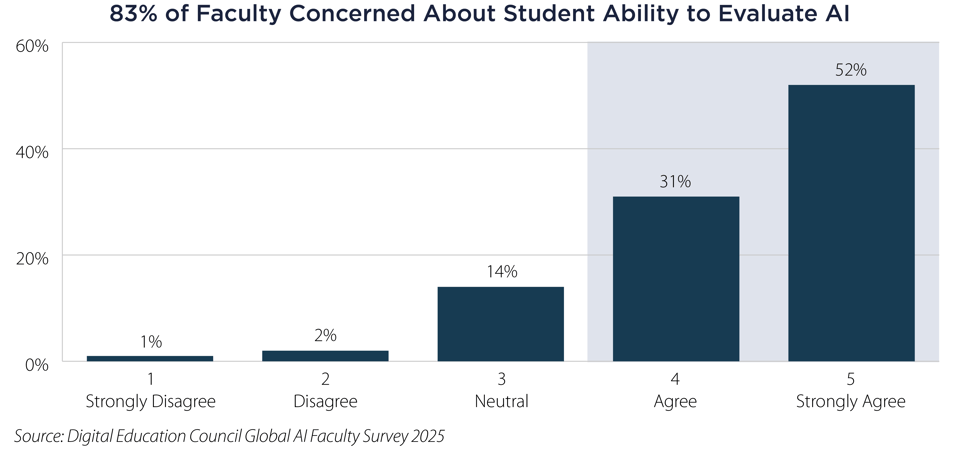Last week Google announced its latest Artificial Intelligence (AI) initiative, Gemini for Education, at the annual International Society for Technology in Education (ISTE) conference. As with almost every newly introduced AI service, it promises to be groundbreaking. Some of the new features like Bulk Grading, YouTube Assignments and Read Along (AI generated interactive stories) come across as replacements for core interactions between instructor and student that existed prior to the AI revolution. These new features beg the question of what will it mean to be a human teacher in the future? As all of us weigh the value, risk and overall impact of AI, education technology increasingly stands out as one of the most foundational change-drivers in our world. But do we have any clue what it means?
In its recent Global AI Faculty Survey, the Digital Education Council found that 83% of the surveyed faculty are concerned about students’ ability to critically evaluate AI-generated output and 82% are concerned about students becoming too reliant on AI.1

In math particularly, we’ve already seen evidence that demonstrates the degradation of performance by students that rely on AI teaching modules for their practice sessions. In a study with over 13,000 observations of Turkish students that used an AI teaching model called GPT Base to help them study for math tests it was found that, “GPT Base diminished the average control of student’s performance on the unassisted exam by 17%.” [compared to students that did not use GPT Base]. The authors of the study concluded that, “These results demonstrate an inherent tradeoff in access to generative AI tools: while these tools can substantially improve human performance when access is available, they can also degrade human learning (particularly when appropriate safeguards are absent), which may have a long-term impact on human performance.”2
The intuition and evidence in this indicate we’re running toward a horizon that we cannot see, and the consequences will unfold in our day-to-day lives with very little pomp and circumstance – the future unfolds gradually. EdTech, just like any other Generative AI, Agentic AI, or General Intelligence model, is ready to change the world, but if we’re not vigilant our schools and universities may just become proverbial pots that boil our intellectual frogs.
Important Disclosures & Definitions
1 Digital Education Council. (January 17, 2025). AI Meets Academia: What Faculty Think. Digital Education Council Executive Briefing.
2 Bastani, H., Bastani, O., Sungu, A., Ge, H., Kabakci, O., & Mariman, R. (July 15, 2024). Generative AI Can Harm Learning. The Wharton School, University of Pennsylvania Research Paper Series.
AAI000963 07/08/2026


